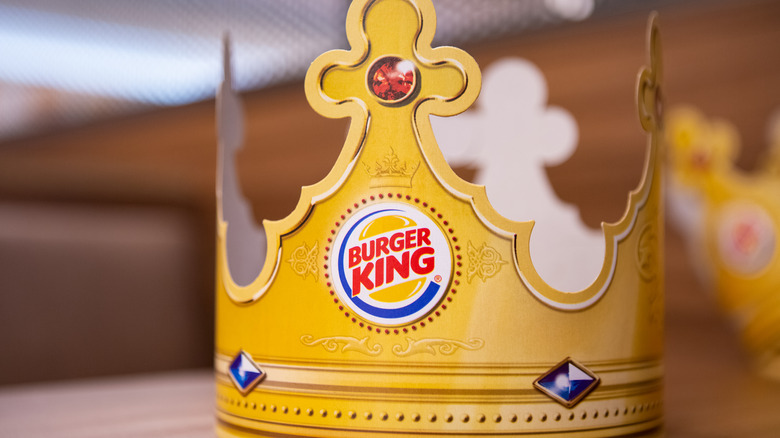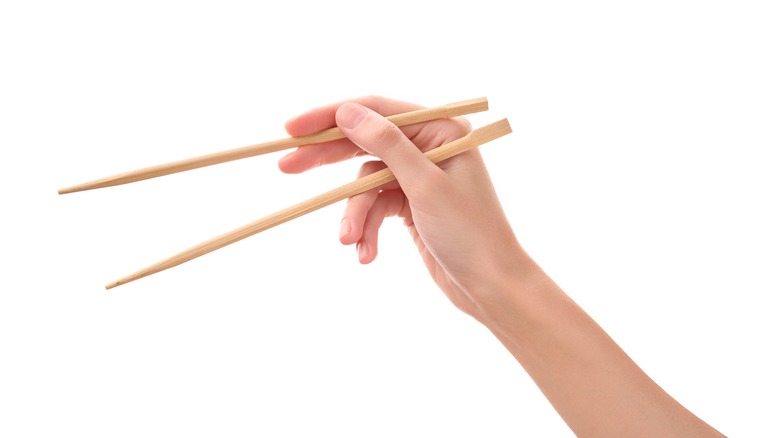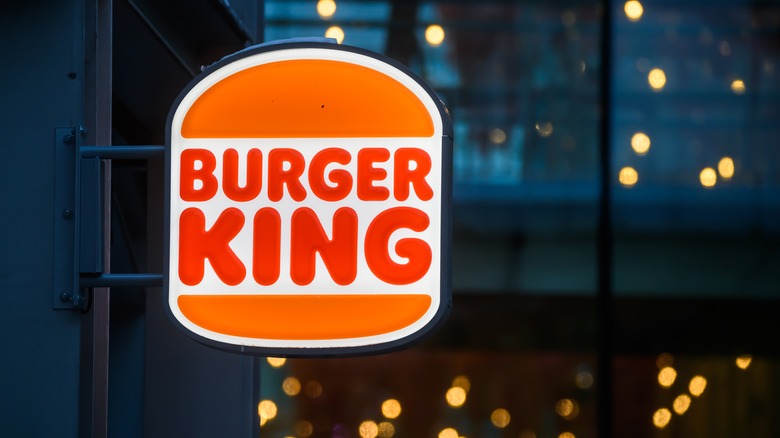Why A Burger King Ad Once Caused Controversy In China
It's safe to say that the world of advertisements is something we're all familiar with. Whether it's on TV, a YouTube video, or even on this very website, you're going to be seeing advertisements. But while most advertisements are at most annoying, there have been some that have gotten people talking in ways that were never intended.
McDonald's in the United Kingdom, back in 2017, was the subject of what some would call a cynical attempt to capitalize on grief. As The Drum reports, the advertisement in question featured a young boy remembering his deceased father through the enjoyment of a Filet-O-Fish sandwich, a ploy that many saw as shameless exploitation of bereavement and loss.
In 2014, sandwich juggernaut Subway was slammed for a "sexist" Halloween commercial that attempted to market the chain's sandwiches as a "health food" towards women — you know, so they could fit into those "sexy" Halloween costumes (via The Hollywood Reporter). You may even remember Carl's Jr. commercials, which featured bikini models eating oversized hamburgers (via Eater).
While these commercials were probably not intended to rile anyone up, it just goes to show that what some may find harmless, others will find offensive. A business must always be incredibly careful and thoughtful in what it says when making a message to the public. Which brings us to one particular incident that involved Burger King, a new burger, social media, and Chinese culture.
Burger King's ad featured a bad take on Chinese culture
In 2019, the New York Post tells us, Burger King's New Zealand branch debuted a new type of burger known as the "Vietnamese Sweet Chilli Tendercrisp Burger." To showcase the burger to the public, a franchisee of the chain uploaded a video of Western citizens trying to eat the enormous sandwich with oversized chopsticks. While the Instagram video was presumably meant as a harmless joke on the size of the burger, it should come as no surprise, then, that many Chinese citizens saw the video as making a mockery of their culture and eating habits.
As one Koren-New Zealander described the ad as Orientalism to CNN. The citizen noted that it wasn't just the use of chopsticks that made the video feel so shameless, but it was how the chopsticks were portrayed as "awkward, oversized utensils" to be seen in a comedic and ridiculous fashion. In turn, it would make Chinese culinary habits appear goofy and nonsensical instead of with the respect deserved.
To Burger King's credit, however, the ad was immediately taken down and a spokesperson from the company would go on record to apologize for allowing the advertisement to be put on its social media and denouncing it as insensitive.
Some, however, seemed to not take such a hard stance against Burger King New Zealand's ad, instead focusing more on what they saw as people being "overly sensitive."
Some saw the advertisement as harmless
On the subreddit r/VietNam, discussion was raised on what, if anything, made Burger King New Zealand's ad so offensive. Some Redditors didn't see the advertisement as evidence of any real malice or racist intent, but just another goofy but harmless advertising stunt.
"Vietnamese here. I wasn't offended. It didn't make me laugh either," said one user. "I just thought it was stupid. Outrage marketing perhaps?"
"Not racist. Just stupid and goofy," was another user's opinion.
"It's poor taste and the idiots who came up with this idea and approved the campain [sic] should be fired," another user said. "But yeah I don't see the racist part."
The South China Morning Post also uploaded a video on YouTube summarizing the controversy regarding Burger King's chopstick ad. Some commenters saw the advertisement's removal being the cause of the proverbial mob, or a group of people who were being too sensitive. "It's not even racist. people nowadays find everything racist," inputted one commenter "They literally were using CHOPSTICKS not ridiculing Asian people and their country."
"Man, I hate that we live in a world where the mob gets its way just by being offended enough," grumbled another viewer.
This is certainly not the first time that Burger King has found itself in hot water regarding racial stereotypes. In 2012, a Burger King advertisement featuring pop singer Mary. J. Blige was seen as racist by some due to perceived slights regarding the stereotypical eating habits of African-American citizens.


